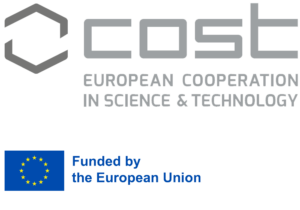The phenomenon of NEETs in Italy: Social policies and projects for the social and employment inclusion of NEETs
Event Date: 21 May 2021 Friday
Organizer: Elena Marta
Location: online
Depending on the socio-cultural characteristics of the territory, each country has specified its NEET profile. However, the risk for these young people to enter social marginalization paths is what unifies the multiple definitions present in the literature (Holte, 2018).
According to the latest ISTAT data, NEETs were more than 3 million in 2020, 25.52% of the population in the 15-34 age group. Considering territorial differences, southern regions NEETs’ incidence stands at 35,5%, almost double that of the northern regions (18.8%) and considerably higher than those found in the Center (21.8%). Beyond the differences described above, we can affirm that these numbers are significantly alarming all over the country. Moreover, if we consider the most industrialized region in Italy, Lombardy, the rate is still worrying since there are about 297,000 NEETs aged 15-34.
The webinar aims at providing a space for reflection and discussion on the NEET topic. It intends to highlight all the projects and social policies that have addressed this phenomenon in Italy. To achieve this goal, we propose three different contributions:
- The first one aims to examine the characteristics and perceptions of Italian NEETs’ condition by presenting the national document analysis conducted within the European COST Project. In addition, it includes the presentation of a work analyzing the use of evidence-based in social policymaking.
- The second one introduces the main projects implemented in Lombardy. These projects involved two levels – training and motivation – and focused on those who do not have the necessary skills to independently enter the labor market and are considered part of a vulnerable group.
- The third one concentrates on school-to-work transition programs aimed at fostering soft skills development. These competencies are considered useful for preventing the NEET phenomenon by helping young people enter the labor market more confidently. Furthermore, active policies are also outlined.
Given the still ongoing health emergency, the webinar will be held online. ECI involvement will occur through the broadcast of webinar invitations in the Doctoral School. In addition, a Ph.D. student, Adriano Mauro Ellena, will be involved in the presentation of contribution 1. Regarding the COST Action CA18213 deliverables, some elements addressed in WG1 national report will be presented in contribution 1. Moreover, in contribution 2, the authors will present some best – practices covered in the Italian national fiche delivered in WG2. Contribution 3 will include a comments session concerning the previous presentations.
Contribution 1:
Author: Elena Marta & Adriano Mauro Ellena
Title: Italian NEETs: characteristics, interventions, and polycimaking.
Abstract: The current contribution examines recent data on the Italian NEET phenomenon. More specifically, it detailly exposes active policies contained in the manual on NEETs strategies and interventions drawn up by the members of COST Action CA18213. The manual contains the methodologies implemented and illustrates the projects carried out in different areas (education, apprenticeship, traineeship, entrepreneurship, agricultural development). Moreover, there will be a specific focus on Youth Guarantee and transition-to-work policies where we will examine how stakeholders use scientific evidence for national policymaking. The aim is to better understand the challenges and complexities of using evidence-based practices to guide future policymakers and stakeholders for developing policies. This will be done taking advantage of the work conducted together with Portugal and Romania
Contribution 2:
Author: Daniela Marzana
Title: Projects and best practices in Lombardy
Abstract: This contribution examines three main projects carried out in Lombardy. They have the common objective of “reactivating” young people by helping them find their way of staying in the social and work context by strengthening their soft skills. For each of these projects, strengths and weaknesses will be illustrated to improve the social planning on young NEETs’ inclusion.
Contribution 3:
Author: Alessandro Rosina
Title: Effective school to work transition: the role of soft skills and active policies.
Abstract: The presentation focuses on the soft skills that may be developed with the attendance of school-work alternation programs. We use data coming from the national survey conducted by the Osservatorio Giovani of the Istituto Toniolo on a representative sample of young people aimed at achieving insight into the role of the complementarity between the school’s action and the alternation pathways in developing a wide range of soft skills. The results show a positive expected impact, providing information that can be used to improve school-to-work transition and therefore to reduce the incidence of NEETs. These results will also be interpreted considering Italian active policies for NEETs.
PROGRAM 17.00 – 18.00 (Italy local time – CEST)
17.00 – 17.05 Introduction: Elena Marta
17.05 – 17.15 Contribution 1: Adriano Mauro Ellena
17.15 – 17.25 Contribution 2: Daniela Marzana
17.25 – 17.35 Contribution 3: Alessandro Rosina
17.35 – 17.45 Discussion: Corrado Celata & Nadia Vimercati
17.45 – 18.00 Debate
![]()

